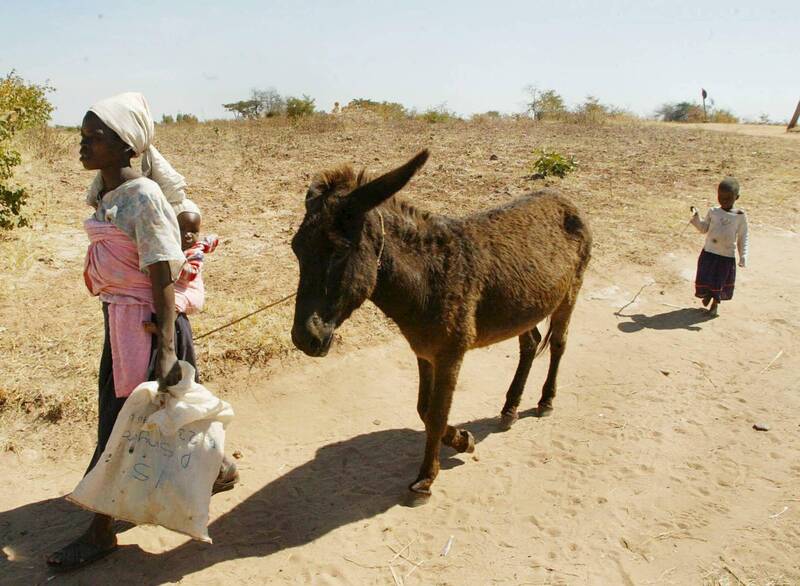Donkeys are important labor animals for Africans. China's demand for the traditional Chinese medicine "Ejiao" has led to rampant theft of donkeys.
(European News Agency)
[Compilation of Wei Guojin/Taipei Report] The report of the South African Institute of International Affairs (SAIIA) pointed out that China’s explosive demand for the traditional medicinal material “Ejiao” has promoted the illegal trade of donkey skins, threatened the livelihood of African farmers, and led to farmers, especially women. poverty.
The report said that China needs more than 5 million donkeys every year, or about 10% of the world's donkeys, to meet its demand for donkey-hide gelatin, while China itself can only provide 2 million donkey skins. Of the 3 million donkey skins imported each year, About 25% to 35% comes from theft, and the vast majority comes from small farmers who rely on donkeys to carry their crops.
Please read on...
The South China Morning Post reported that researchers compared the illegal trade of donkeys with the illegal trade of wild animals used in traditional Chinese medicine and found that this practice is also driving species such as pangolins to the brink of extinction.
Ejiao, which is extracted from donkey skin and herbs, was traditionally hailed as the "medicine for the emperor," but is now being marketed as a sanctuary as China's affluent population grows, the report said.
According to the report, China's population is aging, and the number of retirees will reach 400 million in the 2030s. It is expected that the demand for donkey-hide gelatin will further increase.
Although China imports donkey hides from Brazil, Pakistan and Australia, Africa is a key trade target, the study said.
The gestation period of female donkeys is longer than one year, so lost animals cannot be replaced immediately.
In 2020, there are 53 million donkeys in the world, 99% of which are found in low- and middle-income countries, and about 63% live in Africa.
Report author Lauren Johnston pointed out that most Africans use donkeys as labor animals and contribute to the social mobility of the poor. However, the demand for donkey-hide gelatin in China interferes with this role of donkeys. People, especially women, fall back into poverty".
For the poor in rural Africa, donkeys are important pack animals. Even in arid and harsh environments, donkeys can carry heavy loads and travel long distances without getting tired. However, the donkey skin trade makes women and The situation of the rural poor has been greatly regressed.
In view of the huge profits of China's donkey-hide gelatin industry and the ban on the export of donkeys implemented by some African countries, there have been endless transnational donkey theft and smuggling cases.
Villagers often wake up to find donkeys stolen and skinned remains of donkeys in nearby fields, she said.
Janneke Merkx, director of Donkey Sanctuary, a British charity organization, also said that Chinese demand has pushed up the price of donkeys, leading to rampant theft. Also because of the rising price of donkeys, poor people who depend on donkeys for their livelihood have no ability to replace lost donkeys.
